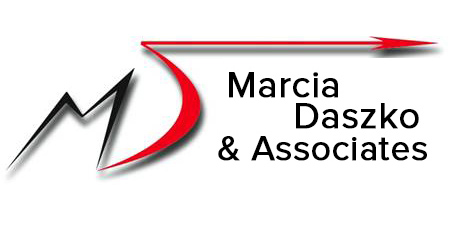Marcia's Leadership Q and As: Leave Your Legacy—Plan Your Future!
/Q. My retirement from a management position is approaching at the end of the year. How do I prepare?
A. There are two major things to consider.
The first is: What is the legacy you want to have? Think about whom you want to mentor before you leave, whom you need to train or communicate with and what work processes need your attention before you depart. What guidance will your team and colleagues need to continue your work? If you have customer-facing relationships, introduce your team to the customers so there is a smooth transition and they can begin building an effective, trusting relationship.
The second is: How do you want to spend your retirement? Some people want to play golf or travel. Some want to read, garden or do home improvement projects. Others intend to spend more time with friends and family. Still others want to get into volunteering and philanthropy work. Many will discover new hobbies or follow passions they didn't have time for while working.
Preparing for retirement is a beautiful time to start with a clean sheet of paper — maybe a flip chart — and dream. Be creative and start creating Chapter Two in your life. If you haven't had interests or hobbies outside of work — a common situation — seek a legacy and retirement coach to guide you through the process. It will be very fulfilling!
There are lots of things you can do: Explore new interests. Give back to your university or trade association. Discover new projects nearby or abroad. Learn a new instrument or language. You'll also find plenty of opportunities to do things such assisting the elderly, helping out in classrooms and serving your community. The possibilities are endless.
Corporations have internal M&A teams or hire CPA & legal firms with this specialized expertise. When corporations are identified to acquire or merge with, these teams do their due diligence: assessing their industry/product fit; and their financial and legal ramifications. There are multiple steps in the process for the team to ask, “Does it make sense to proceed?” But these answers take courage to discuss, debate, and let go of a deal that doesn’t make sense. Also, the deal might make financial sense, especially for the executives involved who will reap phenomenal benefits.
But as many studies have proved, 70 percent to 90 percent of acquisitions fail. Why? And if you want to acquire another corporation and merge, what can you do to succeed that most executives obviously aren’t doing?
The focus and decisions about doing an M&A deal are mentioned above. But why they fail is because executives are only leading part of the job. Financial, legal, and even market/product due diligence is not enough. Those are only a small part of what’s needed to succeed.
The essential and most often missing part of the M&A deal process to be successful is the lack of due diligence and the development of an Integration Plan before the M&A deal is signed! There needs to be due diligence for leadership, communication, culture, decision-making, speed of decisions, customer experiences and relationships, commitment of Quality and responsive service, etc. This process provides critical information to the boards and executives about whether and how to proceed and succeed. With this information, a framework and plan to create and integrate a new System that can deliver successful results and a new collaborative culture, is possible. Without it, M&A deals will continue to deliver a high rate of failure.







